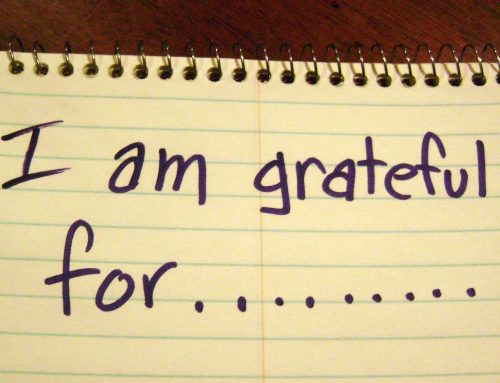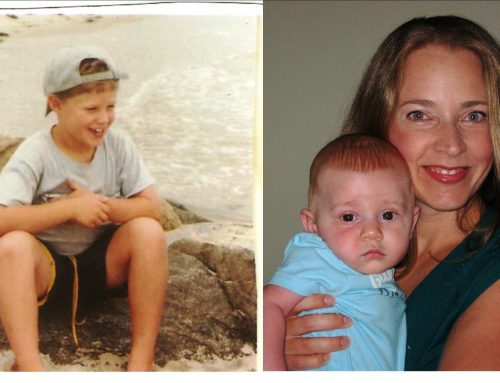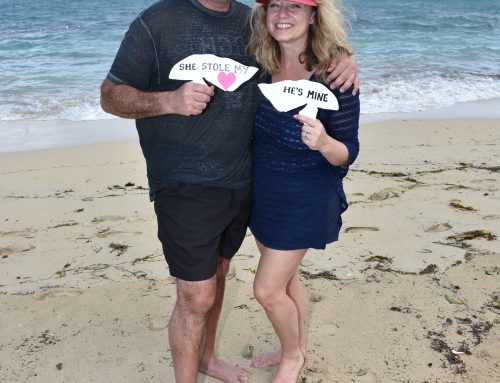 What could possibly be good about grief? An inevitable truth in life is that we will lose someone we love and it will cause us tremendous pain. The death of a loved one sends us into an abyss, adrift and in shock, recovering to a world in which we do not want to live. Grief affects us on multiple levels. The separation causes panic, fatigue, the inability to focus, deep sadness, irrational behavior, confusion and potentially financial difficulty. Grief is extremely high stress, perhaps the highest stress we’ve ever known. While we grieve, we wonder “What good could there possibly be in any of this?” Amidst the pain and sorrow we cannot avoid, we have the opportunity to connect with our deepest, truest selves. In the wake of shattering loss (a loss we do not control), we connect with our humanity, uncover our strength, and build new perspectives. Agonizing pain has the ability to show us true joy, as we move through the shadow of our damage selves and walk into our brave new world. Patience is required as feeling the sun again after the darkness takes time. By affording ourselves time to move through this phase in our lives we practice self compassion. The stages of grief: denial, bargaining, anger, depression, acceptance, describe the emotions we will experience, while compassion and patience ease our journey.
What could possibly be good about grief? An inevitable truth in life is that we will lose someone we love and it will cause us tremendous pain. The death of a loved one sends us into an abyss, adrift and in shock, recovering to a world in which we do not want to live. Grief affects us on multiple levels. The separation causes panic, fatigue, the inability to focus, deep sadness, irrational behavior, confusion and potentially financial difficulty. Grief is extremely high stress, perhaps the highest stress we’ve ever known. While we grieve, we wonder “What good could there possibly be in any of this?” Amidst the pain and sorrow we cannot avoid, we have the opportunity to connect with our deepest, truest selves. In the wake of shattering loss (a loss we do not control), we connect with our humanity, uncover our strength, and build new perspectives. Agonizing pain has the ability to show us true joy, as we move through the shadow of our damage selves and walk into our brave new world. Patience is required as feeling the sun again after the darkness takes time. By affording ourselves time to move through this phase in our lives we practice self compassion. The stages of grief: denial, bargaining, anger, depression, acceptance, describe the emotions we will experience, while compassion and patience ease our journey.
So what does ‘good grief’ mean? It means honoring ourselves and this process in our lives. Begin with this truth: our human nature requires grieving. Not only will we experience loss, but we are wired to succeed in grieving and rebuild our lives. Although our ancestors have endured grief and loss for thousands of years, our pain is not diminished. The pain needs release. Armed with the knowledge we will somehow survive, we are not ‘fixed’ of our need to grieve, but rather supported as we proceed.
Each loss is unique to the griever. While births and deaths are happening around the world each minute, when they occur in our lives they are extraordinary. Our first question is “How am I going to survive this?” Knowing others have walked similar paths, and witnessing their survival, strengthens our belief in the ability to heal. Knowing we are not alone and that it is possible to go on and live a full life allows us to take our first unsure steps into the new world we are creating. New experiences without our loved ones, such as holidays, birthdays, vacations are difficult, but we continue to build this new world we now inhabit. We are unsure how we will live within this new reality, but it keeps evolving and if we keep living in it, our body, mind, and soul carry us where we need to go. We do not need to know how our healing will happen, simply believing it is possible is a kindness we offer our heart.
As we navigate through the early days, we must take extreme care. Resting and eating properly; allowing community to support us; and practicing self compassion fosters proper energy for the days ahead. We must treat ourselves as we would a new born baby, a fragile friend, or beloved pet. We are suffering and our wounds can deepen if we drive ourselves beyond our capacity without taking time to heal. We can allow the wave of grief to wash over us, rather than holding back our tears for fear they will consume us. We may believe that once we start to feel, we will succumb to darkness, but counter to our intuition, we are energized by the release. Each time the wave of grief washes through us we are stronger and better able to function after it passes.
“Grief is like the ocean; it comes on waves ebbing and flowing. Sometimes the water is calm, and sometimes it is overwhelming. All we can do is learn to swim.” –Vicki Harrison
Looking at the world through the eyes of grief can be devastating. “Why is everyone laughing and happy and busy with all the normal things in life?” We feel like we are in a movie scene where we are still and everything is racing around us and we are still. “Stop!”, we want to scream. “Don’t you know, nothing is the way it once was!?” As we look around us, we see the world moving as if nothing happened while we are stopped, living a nightmare, and trying to make sense of our lives in this ‘new normal’.
Our grief moves forward. It is good to know that our current state of pain is not the same as our future state. We do not forget or ‘get over’, but rather the loss becomes woven into the fabric of our lives. We learn to have a relationship with our loved ones that is different than it was before. They are with us in a new way and if we allow, helping us move forward.
“What we have once enjoyed deeply we can never lose. All that we love deeply becomes a part of us.” –Helen Keller
Tips for Good Grieving
The “good” in grieving is the gentleness we offer ourselves which can ease our difficult journey.
- Make self care a priority. Rest when tired. Feed the body well. Be mindful of alcoholic beverages that can numb at the expense of energy and delayed grieving.
- Be patient with yourself. One step at a time is the proper pace. Our energy is not where it once was. It will return in time, but acknowledging the fact that we are working with a deficit of energy and focus, while half of our minds and heart are processing the loss we have just endured, is key.
- Open to the possibility that our loved ones are helping us. Faith that our loved ones have transitioned can empower us with a new connection. Feel their presence in this new way. Know that we can talk to our loved ones even though it is now a one way conversation. We can relinquish control, ask for help, and open our hearts to healing.
- Move through time. Every day forward is an important step in the process of grieving. Celebrate small victories. Each new venture alone without your loved one is a step forward in your life. Life is for the living and we keep living. With every act of living, we create a new reality that welcomes us.
- Build community. Whether new friends or old, cultivating a community around you provides the warmth and support we need. As humans, we need to connect with others. Open yourself up to new experiences. In the beginning, we suffer loneliness. As we move through our grief, allowing ourselves to walk in the sunshine of others and new activities engages us in life again.
There is no right way to grieve, no correct timeline to follow, no perfect path, there is simply a journey of sadness and loss moving toward memory and healing that lies in front of us. At our own pace, with self compassion in mind, and a hope held tightly in our grasp that the future is brighter, we honor this process of life.
“Grief can be the garden of compassion. If you keep your heart open through everything, your pain can become your greatest ally in your life’s search for love and wisdom.”
-Rumi
______________________________________________________________________________
Kim Perone is a Certified Life Coach, in Burnt Hills, New York, whose own path to life coaching was born of grief as significant loss prompting her to become a teacher of resilience. For more information on grief and life coaching, contact Kim Perone at [email protected], (518) 301-3593. Visit www.center4c.com for more articles on inspired living.




